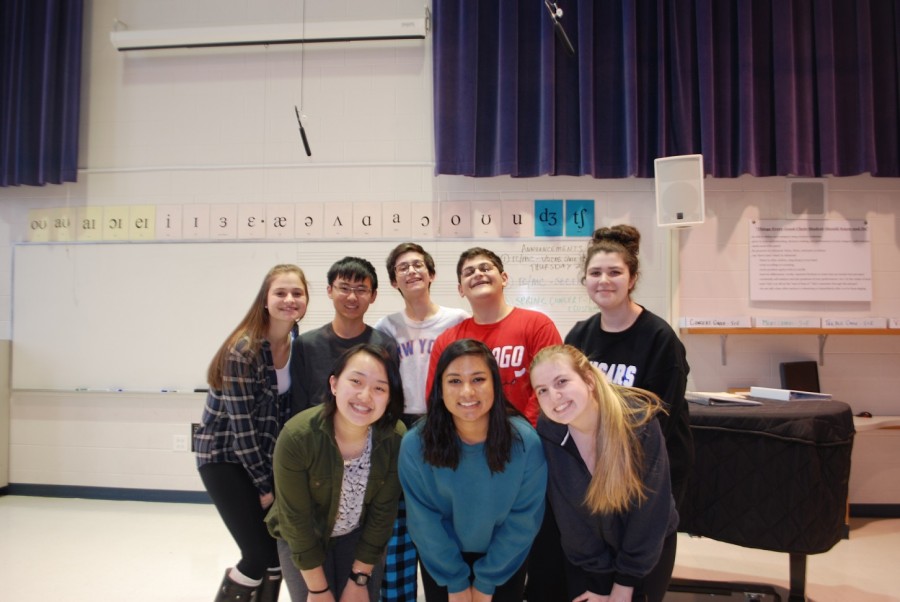Juan Axe
Backlight Theatre Company is presenting its fourteenth production of One Acts, or “juan axe,” as actors affectionately call it. One Acts are student-directed and each play only has one act, hence its title. This year, there are five directors and seven shows.
The rehearsal process for One Acts is much more relaxed than that of a mainstage show; for the first month and a half of production, rehearsals are only a few times per week. As the show nears, the rehearsal process is amped up to ensure that actors will be ready to perform.
“One Acts are so cool because it’s typically smaller casts, and you get really close with the people you’re working with,” said Maggie Collins (12), who is directing Surprise and Scripted.
This is a great opportunity for students who are too busy to be involved in a mainstage show. Additionally, this gives them the chance to act in a larger role than what they would in a mainstage.
One Act directors are typically upperclassmen and have been involved with One Acts throughout their time in high school.
“My sophomore year, I was in current college student Matt Keller’s One Act and it was really fun,” said Kristina Imshaite (12), who is directing Post-its. “He seemed to have a really good time with it, and he said it was one of the best high school experiences that he’s ever had, which is what inspired me to direct both my junior and senior year.”
A difficult aspect of the process for directors is actually picking the show itself. Each director has a fifteen minute time limit and a cast size ranging from about two to four people. Once getting past that hurdle, directors want to find a show with substance.
“I wanted it to be light-hearted and fun, but I also wanted it to mean something,” said Emily Chiarello (12), director of The Subtext of Texting. “My show is so relevant to how people communicate today and at the end of it, you actually leave with a message being sent.”
In order to direct a One Act, a director must take Acting Studio, which follows Introduction to Theatre in the course sequence. This class emphasizes scene study and character development. Most importantly, students have the opportunity to direct scenes.
“It really adds to the directing experience because I get to practice directing another show in a supervised setting,” said Collins.
Another necessity for being an effective director is having experience with One Acts. Nearly every director has either performed, stage managed, or directed a One Act within the last three years.
“I have two shows, which is definitely a challenge, but I feel like I casted the shows really well,” said Anusha Das (12), who’s directing It’s Not You and Tourist Attraction. “The kids that I casted are really talented and they take criticism well. That makes my job easier.”
An important aspect of developing a show is working on character development.
“We’ve been working mainly on character analysis first and focusing on the lines later on because we wanted them to get in touch with their character before they figured out all of the lines,” said Imshaite.
Collins took a different approach when directing her two shows.
“At first, it was all about blocking and memorization, but after that was out of the way, we were able to spend a lot of time working on characters, specific lines, and pacing,” said Collins.
Though directing styles differed, the shows are on the cusp of being performance-ready. As the performances quickly approach, excitement is in the air after school every day in the midi lab, the T.V. studio, the choir room, and even the balcony.
“I’m actually really excited to see everyone else’s shows because my friends are directing them. I know that all the shows are going to be so good,” said Das. “I’m really excited to see the whole thing come together and finally be a show.”
Make sure to come see One Acts on Thursday, February 25 and Friday, February 26 at 7:30 p.m. in the studio theatre!
*Scott Knier wrote and composed Blue Monday, which will also be featured in the One Act performance on Friday night. Check out this feature that was written about his operetta, which is a spin on the conventional One Act.

